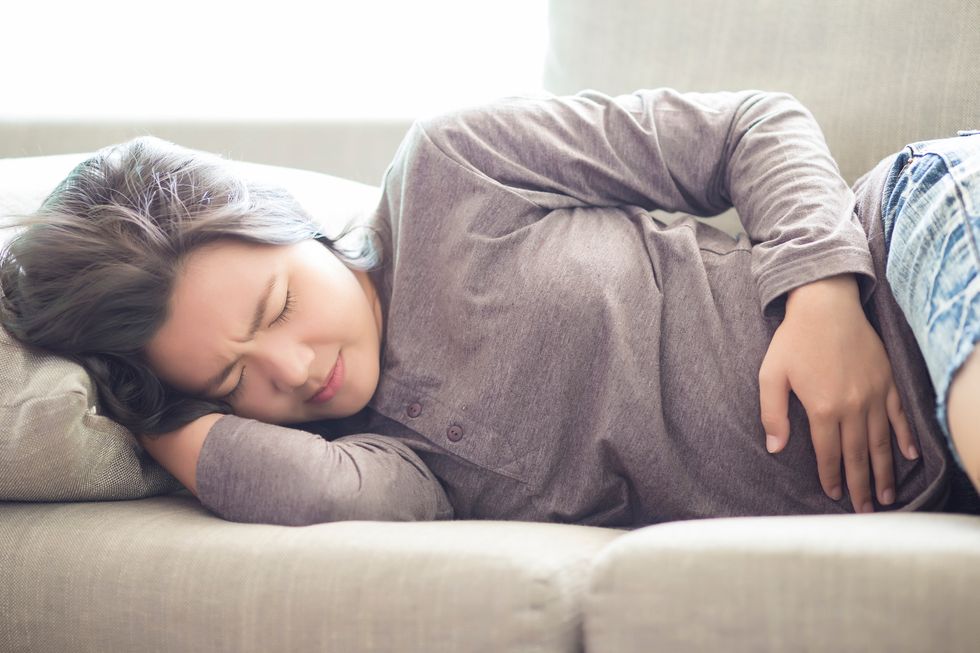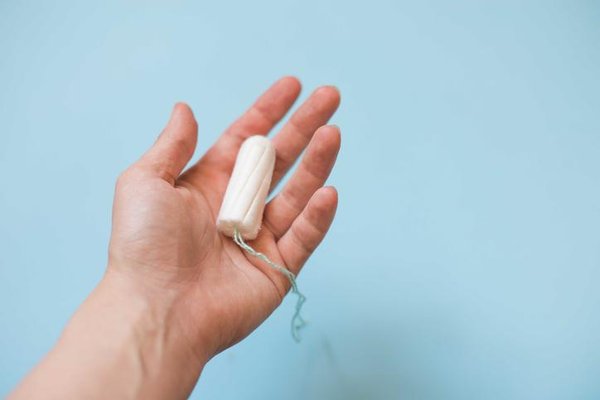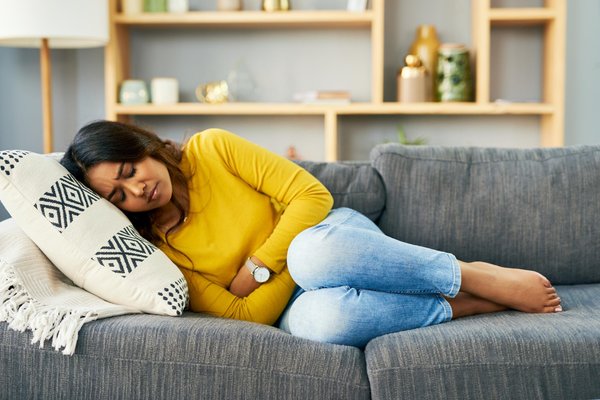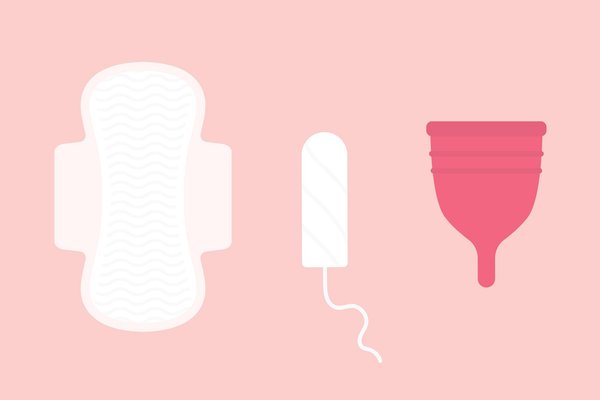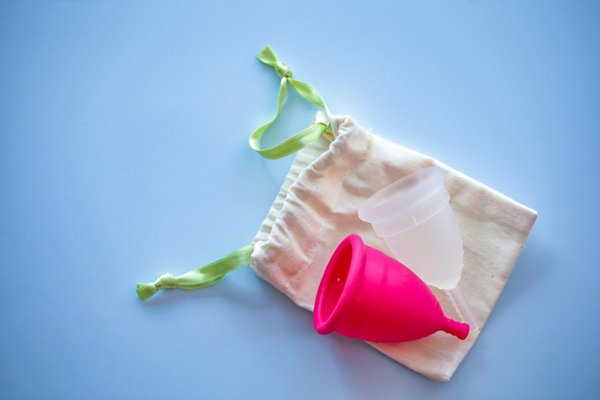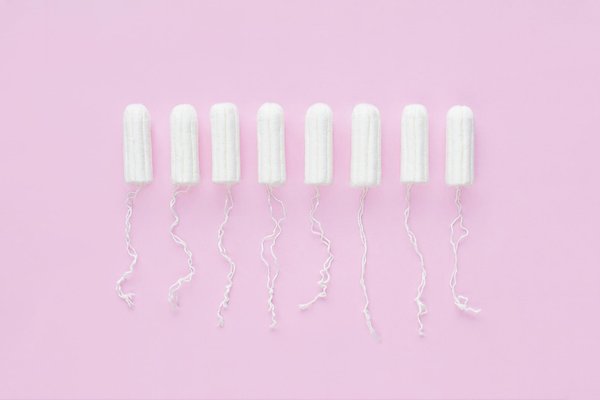Ugh, it's that time of the month and you're dealing with dreaded cramps. It's common to feel uncomfortable around your abdomen, thighs and lower back when you're menstruating. In fact, about half of women who menstruate have some pain—called dysmenorrhea—for one to three days each month.
Menstrual cramps are throbbing or cramping pains in the lower abdomen. The muscles of your womb contract and relax to get rid of built-up lining. And that's when you may get cramps, with some women experiencing more pain than others. The discomfort is merely annoying for some women. For others, cramps can be severe enough to interfere with daily activities for a few days each month.
You likely want to relieve your pain. But perhaps you don't want to pop a pill. You're aiming for relief in a natural way. Here are a few tactics to help you feel better, naturally.
Be sure to speak with your health care provider if your cramps seem severe or you don't have any easing of symptoms. Your clinician can help rule out any other health conditions that may be causing your intense discomfort such as fibroids, a sexually transmitted disease, endometriosis, pelvic inflammatory disease or more serious menstrual disorders.
Eat differently.
Try reducing fat consumption and increasing your vegetable consumption. A low-fat diet decreases the overall inflammation in your body. Plus, it will promote overall good health. You can start by swapping out unhealthy saturated fats and choosing healthier unsaturated fats (such as olive oil). Opt for low-fat or fat-free dairy products.
Getting more magnesium can also ease the pain of cramps. Magnesium helps regulate nerve and muscle functioning, among other tasks. It's found in foods such as dry almonds and boiled spinach.
You also want to avoid foods and drinks that typically cause bloating and water retention. Some culprits include alcohol, carbonated beverages, caffeine and salty foods. Opt for caffeine-free ginger or mint teas or hot water flavored with lemon. When you're in need of a sugar fix, snack on strawberries or raspberries. Read more about Mistakes You're Making During Your Period.
Sip some tea.
Teas have been used to help combat menstrual pain. Start sipping whatever tea gives you relief a week or so before you anticipate your period. Some people have used cramp bark. Tea with peppermint oil may also help. And chamomile tea increases urinary levels of glycine, which helps relieve muscle spasms and acts as a nerve relaxant. Speak with your health care provider before trying these remedies, especially if you're on a blood-thinning drug.
Get acupuncture.
It's used to alleviate the nausea and vomiting caused by chemotherapy. So, it makes sense that it can be useful to help relieve menstrual cramp pain. Acupuncture helps relax the nervous system, causing a stronger blood flood to the internal organs. And it's thought to have an anti-inflammatory effect.
Break a sweat.
Pick what appeals to you; relieve cramps in the bedroom or via exercise. When you do either of these activities, you get endorphins, which help boost your mood and decrease your perception of pain. Sure, working out or having sex may be the last thing you want to do when you're suffering from cramps. But these activities can help reduce pain and relieve the muscle tension that contribute to cramps.
Apply heat.
Curling up with a heating pad can help ease menstrual cramps. One of the oldest medicinal remedies, heat helps muscles relax and increases blood flow to tissues. A review of studies published in the Journal of Physiotherapyfound that heat reduced women's period pain. Don't have a heating pad? Purchase a heat wrap or pack, which you can wear beneath your clothing and against your body. You can also take a warm bath or use a hot towel or hot water bottle.
Massage with essential oils.
Using certain aromatic essential oils and massage can help relieve menstrual cramp pain. A study in the Journal of Obstetrics and Gynaecology Researchfound that women who massaged their lower abdomen (or a partner did so for them!) with essential oils like lavender, clary sage and marjoram from one end of their period to the beginning of the next reported less pain and shorter duration of pain than those who received a cream containing a synthetic fragrance. Purchase scented massage oil or make your own.
Take fish oil or vitamin B1.
Add some fish oil supplements, vitamin B1 or both to your vitamin regimen for relief. A study in Global Journal of Health Sciencefound that participants who took either fish oil, B1 or both had significantly less pain than the placebo group.
Add herbs to your diet.
Some herbals remedies contain anti-inflammatories that may help reduce muscle contractions and swelling associated with menstrual pain. Herbs include fennel seeds, dill, cinnamon and ginger. Always speak with your health care provider before taking any kind of herb.
Visit a chiropractor.
You may find relief by seeing a chiropractor. This spinal manipulation can help provide pain relief, especially in the lower back and uterus area.
Drink water.
If you drink water, you can actually help prevent your body from retaining water and avoid painful bloating. Aim to consume warm or hot water, which is better for cramps. That's because hot liquid increases blood flow and may help relax cramped muscles. You can also eat foods that are water based including celery, lettuce, watermelon or cucumbers.
- Iron Deficiency Anemia and Heavy Periods: What’s the Connection? ›
- Why Do We Feel Embarrassed About Our Periods? ›
- Mistakes You're Making During Your Period ›
- Menstrual Disorders ›
- Clinically Speaking: Questions to Ask Your Healthcare Provider About Periods - HealthyWomen ›
- Ask the Expert: What Causes Painful Periods? - HealthyWomen ›

